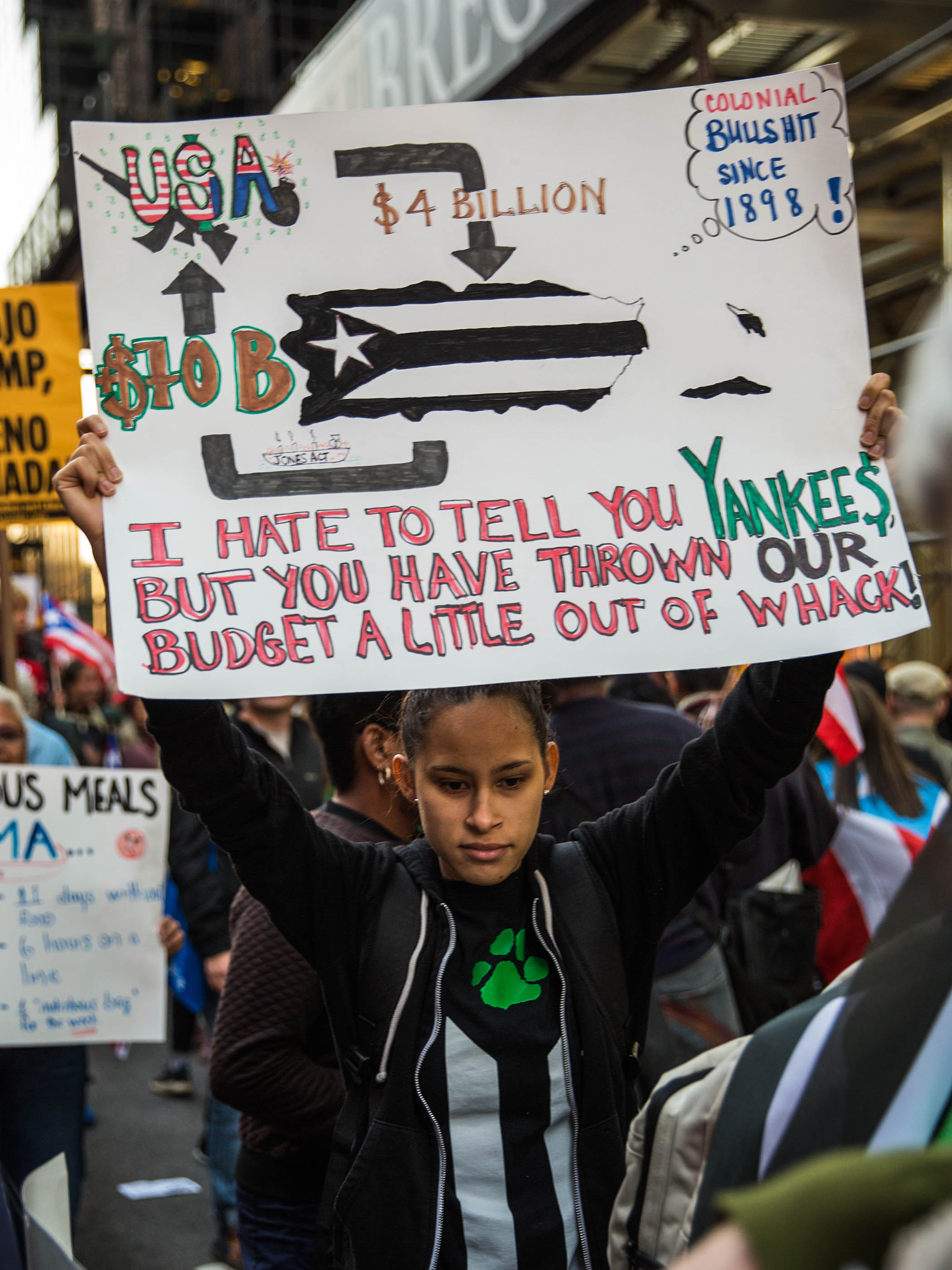Understanding Cultural Sensitivity: What Not To Call Puerto Ricans
Puerto Ricans are proud of their rich heritage, vibrant culture, and unique identity, which is deeply rooted in a blend of Taíno, African, and Spanish influences. However, misunderstandings about their identity and cultural nuances can lead to unintentional disrespect. Using inappropriate terms or labels can perpetuate stereotypes and harm relationships. This article aims to shed light on what not to call Puerto Ricans and why it matters. Whether you're new to learning about Puerto Rican culture or seeking to deepen your understanding, this guide will provide valuable insights to foster mutual respect and appreciation.
Language plays a critical role in shaping perceptions and interactions. Mislabeling or using outdated terms can create barriers and reinforce negative stereotypes. For instance, calling Puerto Ricans by terms that diminish their nationality or cultural pride can lead to misunderstandings and even offense. Understanding what not to call Puerto Ricans is not just about avoiding certain words; it’s about embracing their identity with respect and authenticity. By learning the correct terminology and context, you can build stronger connections and demonstrate cultural sensitivity.
Many people may not realize that Puerto Ricans have a distinct identity that goes beyond being "just another Hispanic group." They are U.S. citizens with a unique relationship to the United States, yet their cultural roots are firmly tied to the island of Puerto Rico. Recognizing this duality is essential for anyone seeking to engage with Puerto Rican communities respectfully. Let’s explore the nuances of identity, terminology, and cultural pride to ensure that we honor Puerto Ricans in the best possible way. This article will answer your questions about what not to call Puerto Ricans and provide actionable insights to promote inclusivity.
Read also:Bethenny Frankel Swimwear Dive Into Style And Comfort
Table of Contents
- What Are the Common Misconceptions About Puerto Ricans?
- Why Is Cultural Sensitivity Important?
- What Not to Call Puerto Ricans
- How Can You Show Respect for Puerto Rican Identity?
- What Are the Key Aspects of Puerto Rican Culture?
- Why Should You Avoid Stereotypes?
- What Are the Historical Roots of Puerto Rican Identity?
- How Does Language Impact Cultural Understanding?
- What Are the Best Practices for Cultural Awareness?
- How Can You Learn More About Puerto Rican Heritage?
What Are the Common Misconceptions About Puerto Ricans?
One of the most prevalent misconceptions is that Puerto Ricans are simply "Hispanics" or "Latinos" without recognizing their unique national identity. While Puerto Ricans are part of the broader Latin American community, their distinct cultural heritage sets them apart. Another misconception is that all Puerto Ricans speak Spanish fluently. While Spanish is the primary language, many Puerto Ricans are bilingual or even primarily English-speaking, especially those living in the mainland United States.
Additionally, some people mistakenly assume that Puerto Ricans are immigrants. In reality, Puerto Ricans are U.S. citizens by birth, and their relationship with the United States is governed by the island's status as a U.S. territory. These misconceptions can lead to inappropriate labels and misunderstandings, which is why it’s crucial to understand what not to call Puerto Ricans.
Why Is Cultural Sensitivity Important?
Cultural sensitivity is essential for fostering mutual respect and understanding in a diverse world. When interacting with Puerto Ricans or any cultural group, using respectful language demonstrates awareness and consideration. Missteps in terminology can lead to alienation and reinforce harmful stereotypes. For example, calling Puerto Ricans by terms that generalize or diminish their identity can create feelings of exclusion.
By prioritizing cultural sensitivity, you contribute to a more inclusive environment. Understanding what not to call Puerto Ricans is a step toward breaking down barriers and building meaningful connections. It’s not just about avoiding offense; it’s about celebrating diversity and promoting unity.
What Not to Call Puerto Ricans
Using inappropriate terms to describe Puerto Ricans can be disrespectful and offensive. Here are some examples of what not to call Puerto Ricans:
- "Spics": This derogatory term is offensive and rooted in racial discrimination.
- "Island People": While Puerto Ricans are from an island, this term can feel reductive and dismissive of their cultural complexity.
- "Foreigners": Puerto Ricans are U.S. citizens, so labeling them as foreigners is inaccurate.
These terms not only perpetuate stereotypes but also undermine the rich cultural heritage of Puerto Ricans. By avoiding such language, you show respect for their identity and history.
Read also:Dwayne Black Turtleneck The Ultimate Style Guide And Biography
Why Should You Avoid Stereotypes?
Stereotypes are oversimplified and often harmful generalizations that reduce individuals to a single narrative. For Puerto Ricans, stereotypes such as being "lazy" or "exotic" are not only inaccurate but also damaging. These labels ignore the diversity and complexity of Puerto Rican identity. Avoiding stereotypes is crucial for fostering genuine understanding and respect.
How Can You Show Respect for Puerto Rican Identity?
To show respect for Puerto Rican identity, start by educating yourself about their history, culture, and contributions. Use accurate and respectful terminology, and avoid making assumptions based on stereotypes. Engage with Puerto Rican communities, listen to their voices, and celebrate their achievements. By doing so, you honor their identity and promote inclusivity.
What Are the Key Aspects of Puerto Rican Culture?
Puerto Rican culture is a vibrant tapestry of traditions, music, food, and language. Key aspects include:
- Music: Genres like salsa, reggaeton, and bomba are integral to Puerto Rican identity.
- Cuisine: Dishes like mofongo, arroz con gandules, and lechón asado are staples of Puerto Rican gastronomy.
- Festivals: Celebrations like the San Sebastián Street Festival showcase the island's cultural richness.
Understanding these elements helps foster appreciation for Puerto Rican culture and reinforces the importance of using respectful language, including what not to call Puerto Ricans.
What Are the Historical Roots of Puerto Rican Identity?
Puerto Rican identity is shaped by a complex history of colonization, resistance, and resilience. The island was originally inhabited by the Taíno people before Spanish colonization in the late 15th century. African influences were introduced through the transatlantic slave trade, creating a unique cultural blend. Understanding this history is crucial for appreciating Puerto Rican identity and avoiding inappropriate labels.
How Does Language Impact Cultural Understanding?
Language is a powerful tool for cultural expression and understanding. Using respectful and accurate terminology is essential for fostering positive interactions. For example, referring to Puerto Ricans as "Boricuas," a term derived from the Taíno name for the island, is often seen as a sign of respect. On the other hand, using derogatory terms or labels that ignore their identity can create barriers.
What Are the Best Practices for Cultural Awareness?
To promote cultural awareness, consider the following best practices:
- Educate Yourself: Learn about Puerto Rican history, culture, and contributions.
- Listen Actively: Engage with Puerto Rican voices and perspectives.
- Avoid Assumptions: Don’t generalize or stereotype based on limited knowledge.
- Use Respectful Language: Be mindful of what not to call Puerto Ricans and why.
By adopting these practices, you demonstrate cultural sensitivity and respect.
How Can You Learn More About Puerto Rican Heritage?
Exploring Puerto Rican heritage can be a rewarding experience. Consider visiting cultural museums, attending festivals, or reading books by Puerto Rican authors. Engaging with Puerto Rican communities and listening to their stories can also deepen your understanding. By learning more about Puerto Rican heritage, you can avoid misunderstandings and celebrate their unique identity.
Flat Ironed Irish Curls: A Modern Take On Classic Beauty
Unpacking The Viral Sensation: Hamlet Act 4 Scene 4 Meme
Understanding Cultural Sensitivity: What Not To Call Puerto Ricans

PUR Puerto Ricans’ Centrobasket clash with Mexico postponed FIBA

Puerto Ricans suffer as Donald Trump plays to his racist base News